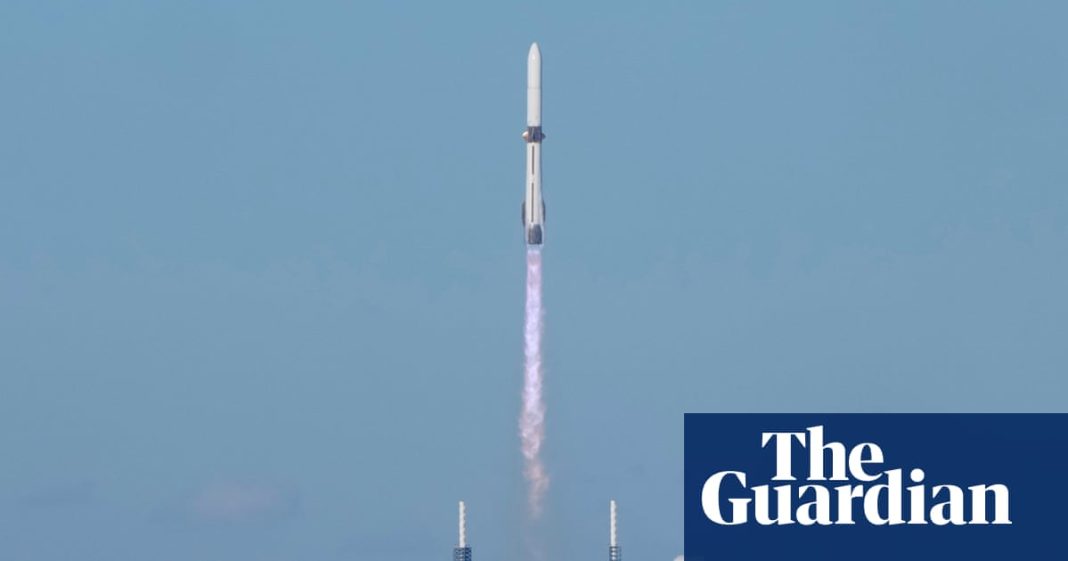The dawn of a new era in space exploration has been ushered in by a remarkable collaboration between private enterprise and government ambition. Recently, Jeff Bezos’s Blue Origin successfully launched a formidable rocket carrying twin NASA spacecraft destined for Mars, marking a significant milestone not just for American space efforts but for the global space community, including India.
This mission exemplifies the accelerating trend of private companies playing a pivotal role in grand scientific endeavours, a paradigm shift that holds profound implications for how humanity ventures beyond Earth. For a nation like India, with its own illustrious space program, this development from Blue Origin and NASA offers both inspiration and a glimpse into potential future collaborations and competitive landscapes.
Blue Origin’s Ascendant Role in Interplanetary Travel
Blue Origin, largely known for its suborbital tourism ventures with New Shepard, has now flexed its capabilities in the realm of deep-space missions. The launch of the twin NASA spacecraft to Mars aboard its powerful New Glenn heavy-lift rocket represents a monumental step for the company. While the specifics of the contract remain under wraps, this partnership underscores NASA’s increasing reliance on private sector innovation and reliability for critical missions.
For years, government agencies like NASA and ISRO (Indian Space Research Organisation) have been the primary architects of planetary exploration. However, Blue Origin’s successful launch demonstrates the growing maturity and technological prowess of private aerospace firms. This development positions Blue Origin as a serious contender alongside other commercial space giants, capable of undertaking complex, long-duration missions far beyond Earth’s orbit. The vision of Jeff Bezos to “build a road to space” is clearly taking tangible shape, extending from Earth’s lower orbit to the vast expanse of the solar system.
The Twin Explorers: Unveiling Martian Secrets
The core of this mission lies in the twin NASA spacecraft, meticulously engineered to unlock more of Mars’s enduring mysteries. These identical probes are designed for a multi-year exploration of the Martian surface and atmosphere, focusing on different, yet complementary, scientific objectives. While NASA has a long history of Martian exploration, from the Viking landers to the Perseverance rover, sending twin spacecraft simultaneously offers unique advantages.
Advanced Scientific Objectives
Each spacecraft is equipped with a suite of cutting-edge instruments. One probe is reportedly tasked with an in-depth geological survey, searching for subsurface water ice and ancient microbial life signatures in different regions. The other will concentrate on atmospheric dynamics, studying dust storms, seasonal changes, and the planet’s slow but continuous loss of atmosphere into space. By deploying two identical, yet independently operating, craft, NASA aims to gather data from geographically distinct locations, providing a more comprehensive understanding of Mars’s past and present conditions.
Commenting on the collaborative effort, Dr. Priya Sharma, a renowned astrophysicist at the Indian Institute of Astrophysics, stated, “This mission is a testament to what can be achieved when innovation meets ambition. The synergy between Blue Origin’s launch capabilities and NASA’s scientific vision sets a powerful precedent for future interplanetary missions. It’s inspiring for every nation, including India, which is also charting its path in deep space.”
India’s Trajectory in a Evolving Global Space Landscape
India, a venerable space power with its own Mars Orbiter Mission (Mangalyaan) success, watches such developments with keen interest. ISRO has consistently demonstrated cost-effective and innovative approaches to space exploration, inspiring a burgeoning private space sector within the country. Companies like Skyroot Aerospace and Agnikul Cosmos are emerging, mirroring the private innovation seen globally.
Blue Origin’s successful Mars launch serves as a powerful reminder of the evolving global space paradigm. It highlights the increasing feasibility and reliability of private-public partnerships for even the most ambitious scientific endeavors. For India, this implies not only potential avenues for future international collaborations but also fuels the domestic imperative to nurture its own private space ecosystem. As the global space economy expands, such missions underscore the collective human drive to explore, transcending national boundaries through technological prowess and shared scientific curiosity.
The journey to Mars is arduous, and the twin spacecraft have a long way to go before they begin their primary missions. However, the successful launch by Blue Origin is a pivotal moment, signalling a future where the exploration of distant worlds might become a more frequent and collaborative endeavour, with India playing an increasingly significant role.




